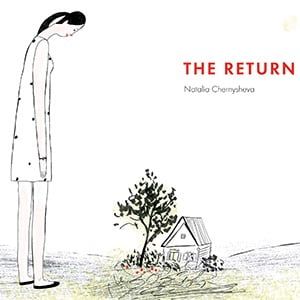In this picturebook, a woman returns home from her exciting life in the city to visit her grandmother, but finds that she is a giant compared to her, representing her sense of maturity and new-found independence. However, as she reconnects with her … [קרא עוד ...]
Bon Voyage [דרך צלחה]
האירוניה העגומה המגולמת בכותרת מדגימה כיצד הסרט מטפל באופן בלתי מתפשר בנושא הקשה והחשוב של הה הכפויה. הסרט מתחיל עם אנימציה רגילה, בתמונה של פליטים המוצגים ברישומי קווים פשוטים, כשהם נמלטים מסכנה אל עבר הביטחון המדומין שבאירופה. הקבוצה רואה בעיני … [קרא עוד ...]
Naar de Markt [השוקה]
הספר הזה מציג סיפור פשוט של אמא ובת שהולכות לשוק המקומי. הקורא חולק עם הדמויות מגוון חוויות, כולל מאכלים וממתקים מסוגים שונים, שנמכרים על ירי סוחרים מתרבויות שונות ודתות שונות. האפקט של החגיגה הזו – כאשר השתיים הולכות ברחבי השוק, זה נהיה ברור שהזהות … [קרא עוד ...]
Kim Bu Gelen? [מי זה בא?]
A game of chess between chickens is disturbed by the loud footsteps of a passing giraffe in this eccentric Turkish wordless picturebook. The chickens try hard to get the attention of the giraffe and the picturebook ends with the arrival of an even … [קרא עוד ...]
Vu d'en haut [מבט-על]
This short early concept book is stylistically bold and uses a simple premise: what do things look like from above? A hot summer day is the scene of the story: readers will be able to spot the bird’s eye view of a small town with hot yellow lawns … [קרא עוד ...]
Zachem? [למה?]
This famous Russian wordless picturebook is one of the oldest picturebooks in the selection, as it was published at the end of the twentieth century. It has been re-published many times since in many different countries: sometimes with words, and … [קרא עוד ...]
Che Capolavoro! [איזו יצירת מופת!]
This picturebook takes canonical examples of classic and modern art to explore the universality of artwork in everyday life. The main character is surrounded by signifiers of art and culture - from Banksy to Salvador Dali, from Einstein to the Eiffel … [קרא עוד ...]
Ką padarė žirklės? [מה עשו המספריים?]
The majority of wordless picturebooks produced in Europe are produced in Northern and Western European countries. However, the oldest example of the form used in this corpus is a Lithuanian wordless picturebook originally published in 1961. It has … [קרא עוד ...]
Meidän piti lähteä [היינו חייבים לעזוב]
This is another example of a wordless picturebook that deals with the topic of the migrant crisis. We Had to Leave is gentler and happier than the other examples in the corpus: Migrando [Migrating], Orizzonti [Horizons], and Mediterraneo [The … [קרא עוד ...]










